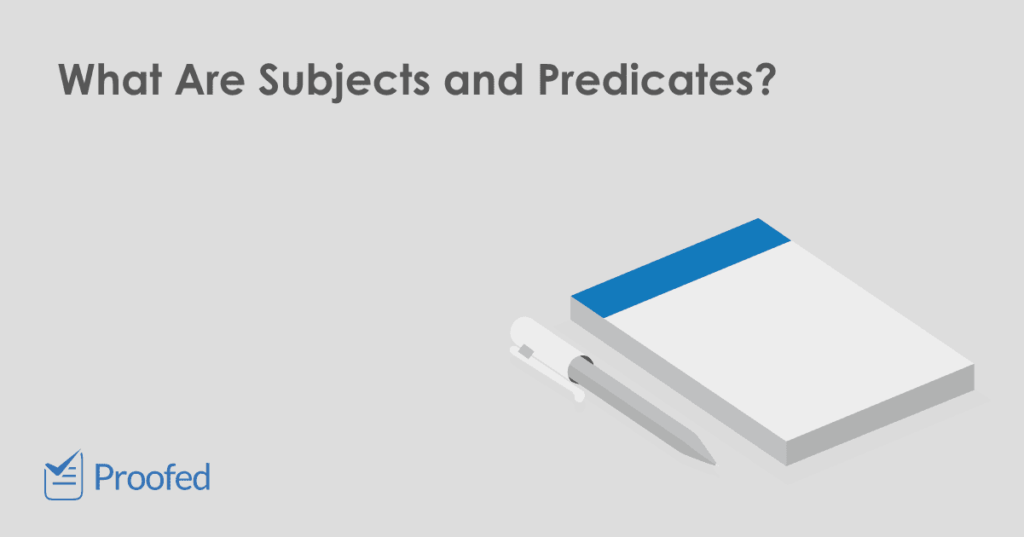When you write, it’s important to use correct grammar. This includes writing in complete sentences. And to do that, you need to use a subject and a predicate. But what are subjects and predicates? Let us explain the basics.
What Is the Subject in a Sentence?
The subject is the person or thing that a sentence (or clause) is about. This can be a noun, a noun phrase, or just a pronoun. For example:
President Obama was a successful leader.
The year-long study produced exciting results.
She is learning French in Paris this summer.
The subjects of the sentences above are shown in bold. Notice that, in each case, the subject is the person or thing doing or being something.
What Is a Predicate in a Sentence?
The predicate in a sentence (or clause) tells us what the subject is doing or being. This can be as little as a single verb:
The shaggy old dog runs.
Here, the predicate is “runs,” which tells us what the subject (i.e., “The shaggy old dog”) is doing. More often, though, a predicate is a verb and some modifiers. We can see this in the examples above:
President Obama was a successful leader.
The year-long study produced exciting results.
She is learning French in Paris this summer.
This time, we’ve highlighted the predicates in these sentences (i.e., what the subject was doing or being in each case).
Find this useful?
Subscribe to our newsletter and get writing tips from our editors straight to your inbox.
Can a Sentence Have More than one Subject or Predicate?
Some sentences have more than one clause (i.e., groups of words with a subject and a verb). And every clause in a sentence will have its own subject and predicate. We’ll look at this below, using the same color coding as we’ve used so far in this post to make the subjects and predicates easier to tell apart (i.e., blue = subject, green = predicate).
A compound sentence, for instance, has multiple independent clauses linked with coordinating junctions. And each clause in a compound sentence should have a clear subject and predicate of its own:
The dog is barking, but the cat is quiet.
But the same applies to complex sentences, even if this is less obvious:
This study is important because it fills a gap in the existing literature.
Here, we have two clauses: a main clause (i.e., “This study is important”) and a subordinate clause (i.e., “because it fills a gap in the existing literature”).
The subject of the main clause and the overall sentence is “This study,” with the rest of the sentence serving as a predicate. But the second clause, starting with the subordinating conjunction “because,” has a pronoun and verb of its own. As such, we can break this one down as well:
…because it fills a gap in the existing literature.
No matter the clause type, though, you can tell a subject from a predicate by thinking about who or what in a clause is “doing” or “being” something.
Summary: Subjects and Predicates
Knowing how subjects and predicates work can help you avoid grammatical errors in your writing. Remember:
- Every complete clause has a subject and a predicate.
- A subject is the thing a sentence is about (i.e., the thing or person acting in a sentence). This is typically a noun, noun phrase, or pronoun.
- A predicate is the part of a sentence that tells us what the subject is doing or being. This will include at least a verb, but could be longer.
We hope this has clarified a few things about subject and predicates. If you’d like any more help with your grammar, though, why not submit a sample of your writing for proofreading? We have a team of experts ready to go!
